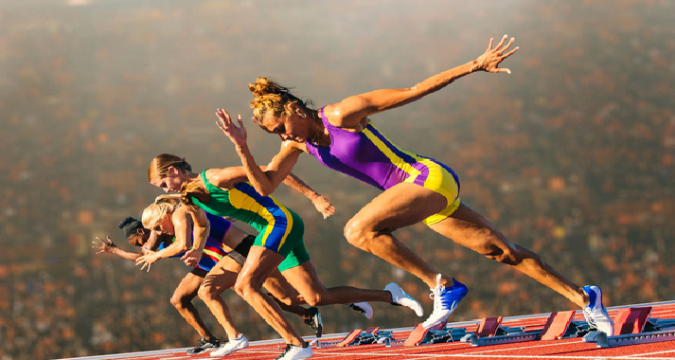
For a very long time, the Olympic Games have represented world harmony, sports prowess, and national pride. Today’s Games, however, are more than just a commemoration of athletic accomplishment; they have grown into a multimillion dollar enterprise with significant economic ramifications. The Olympic sports market is a dynamic and changing environment where sponsorships, media rights, branding, and commercialization are important factors. This is revealed by the collision of sports and business.
The Market for Olympic Sports Has Changed
Historically, athletes have competed in the Olympics only for the love of the sport, with amateurism and pure competitiveness serving as the foundational principles. Nonetheless, the commercial infrastructure that supports the Games has expanded in tandem with their size and scope. The commercialization of the Olympics began with the introduction of corporate sponsorships in the early 1900s. The 1984 Summer Olympics in Los Angeles was a turning point in the history of the event as its organizers, under the direction of Peter Ueberroth, created a new paradigm for revenue by obtaining exclusive sponsorship deals and selling broadcast rights to major media sources. This achievement changed the Olympic model and made it possible for it to become what it is today—a business.
Branding and Sponsorships: The Olympic Economy’s Lifeblood
The Olympic sports market is mostly supported financially by corporate sponsorships. Prominent international businesses fork out millions of dollars to link their brands to the prestige and global recognition of the Olympic Games. The International Olympic Committee (IOC) developed the Olympic Partners (TOP) program, which grants global companies the exclusive right to use Olympic images and emblems in their marketing campaigns in exchange for their sponsorship of the Games. Businesses who have made significant investments in this initiative, like Visa, Samsung, and Coca-Cola, have access to a billion-strong worldwide audience.
The Olympics provide unmatched brand exposure for companies. With millions of viewers across several media and over 200 participating nations, businesses have the opportunity to connect with a wide range of demographics in a manner that few other events can equal. The connection to the Olympic principles of excellence, harmony, and fair play also offers beneficial brand alignment, which aids in the development of a company’s reputation and trust.
Broadcasting and Media Rights: Energizing the World Show
Media rights are a noteworthy cash source within the Olympic sports industry. The exclusive rights to broadcast the Games on traditional television and digital platforms are obtained by broadcasters for astronomical sums of money. Networks who have the U.S. rights to broadcast the Olympics, such as NBC, invest billions of dollars to make sure that viewers worldwide can see the spectacle. The tremendous worldwide viewership ratings of the Olympics, with billions of people tuning in for both the Summer and Winter Games, justify this spending.
The popularity of on-demand programming and internet streaming has increased the audience for Olympic coverage. Fans may now watch events in real time on their laptops, smart TVs, or mobile devices, making for a more engaging and customized watching experience. Because marketers may now target particular audiences with customized material during broadcasts, the change to digital media has created new opportunities for advertising.
Problems and Debates Regarding the Olympic Business Model
Even with its financial prosperity, the market for Olympic sports is not without difficulties. In recent decades, the cost of holding the Games has increased dramatically, placing a heavy financial load on many host towns. Cities are frequently in debt long after the Games are done as a result of security expenditures, infrastructure investments, and the building of Olympic communities and stadiums. For instance, the Olympics in Athens in 2004 exacerbated Greece’s financial crisis, while Brazil’s legacy from the 2016 Rio Games included underutilized facilities and environmental issues.
In addition, criticism that the Olympics have deviated from its basic purpose has been sparked by worries about commercialization. Some contend that the spirit of sports competition has been eclipsed by the emphasis on revenues and corporate interests, with consequences for both athletes and fans.
In conclusion, how will the market for Olympic sports develop?
The relationship between sports and business will further deepen as the Olympic sports industry develops more. The Games are more than simply a celebration of athletic achievement; they serve as a platform for businesses to market their products, for media to draw viewers, and for communities to highlight their strengths. Moving forward, the task will be to strike a balance between the Olympic Games’ economic features and the fundamental principles that have made them a lasting representation of international rivalry and unification.